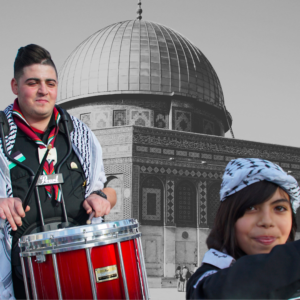Ali ibn Musa al-Ridha: A Beacon of Divine Knowledge and Compassion

The 11th of Dhul Qa’dah in the Islamic calendar marks the birth of the eighth Shia Imam, Ali ibn Musa al-Ridha, a direct descendant of the Prophet Muhammad (PBUH).
His shrine, located in Mashhad, Iran, is one of the most visited in the world, drawing over 30 million pilgrims annually.
Ali ibn Musa is widely revered for educating thousands in his time, and defending the truth under an oppressive regime. His legacy continues to inspire millions worldwide.
Noble Lineage
Born in 148 AH (765 CE) in Medina, Ali ibn Musa was the son of Musa al-Kadhim, the seventh Shia Imam. His title, “Al-Ridha”, means “The One with whom God is pleased.”
As a revered scholar and spiritual leader, he played a critical role in preserving the teachings of the Prophet’s family, commonly referred to as the Ahlul Bayt.
After his father’s assassination in an Abbasid prison, Ali ibn Musa assumed leadership during one of the most politically volatile periods in Islamic history.
From Medina to Marw
Following a power struggle between the Abbasid caliphs Ma’mun and Amin, Ma’mun emerged victorious and sought to strengthen his claim by aligning with the Prophet’s lineage.
He summoned Ali ibn Musa to Marw (in modern-day Turkmenistan), effectively exiling him from Medina. Though framed as an invitation, the journey from Medina was involuntary, aimed at bringing the Imam under closer watch.
Like many of the Prophet’s descendants, Ali ibn Musa was viewed as a potential political threat, closely monitored by the Abbasid regime.
The Abbasids closely watched the descendants of the Prophet, fearing their influence and growing legitimacy in society.
Preserving Islam Through Politics
Ali ibn Musa, unlike his predecessors, was drawn into the political sphere by circumstance. Ma’mun, recognizing the Imam’s influence among Persians, offered him the caliphate—an offer the Imam declined. Eventually, he agreed to become the heir-apparent, foretelling:
“I will accept this to console you, but this will never happen, for I will leave this world before you.”
During his time in Khorasan, Ali ibn Musa participated in interfaith debates hosted by Ma’mun. Scholars from across religions—Christianity, Judaism, Zoroastrianism—attended.
Ali ibn Musa’s profound knowledge and eloquence attracted many toward Islam and reaffirmed the spiritual authority of the Ahlul Bayt.
Scholar and Medical Pioneer
Ali ibn Musa’s era was marked by flourishing science and medicine.
Among his most notable contributions is the medical text Al-Risala al-Dhahabiyya fil Tibb (The Golden Dissertation in Medicine). It addresses health, treatment methods, and disease prevention from both a medical and spiritual perspective.
So impressed was Ma’mun by this work that he had it transcribed in gold and distributed across his court and among scholars. Physicians of the time adopted many of Ali ibn Musa’s practices, some of which continue to be studied today.
Martyrdom and Enduring Legacy
Ali ibn Musa’s influence became too great for Ma’mun to tolerate. The Imam was imprisoned and ultimately poisoned in 201 AH (817 CE) in Sanabad, near Tus, where he is buried today.
Despite political rank, Ali ibn Musa led a life of humility, piety, and generosity. He gave away all his possessions, regularly fed the poor, and remained devoted to the moral teachings passed down from his grandfather, Prophet Muhammad.
His shrine in Mashhad continues to be a source of spiritual solace, attracting millions and keeping alive the legacy of justice, knowledge, and divine service.
If you value our journalism…
TMJ News is committed to remaining an independent, reader-funded news platform. A small donation from our valuable readers like you keeps us running so that we can keep our reporting open to all! We’ve launched a fundraising campaign to raise the $10,000 we need to meet our publishing costs this year, and it’d mean the world to us if you’d make a monthly or one-time donation to help. If you value what we publish and agree that our world needs alternative voices like ours in the media, please give what you can today.
















